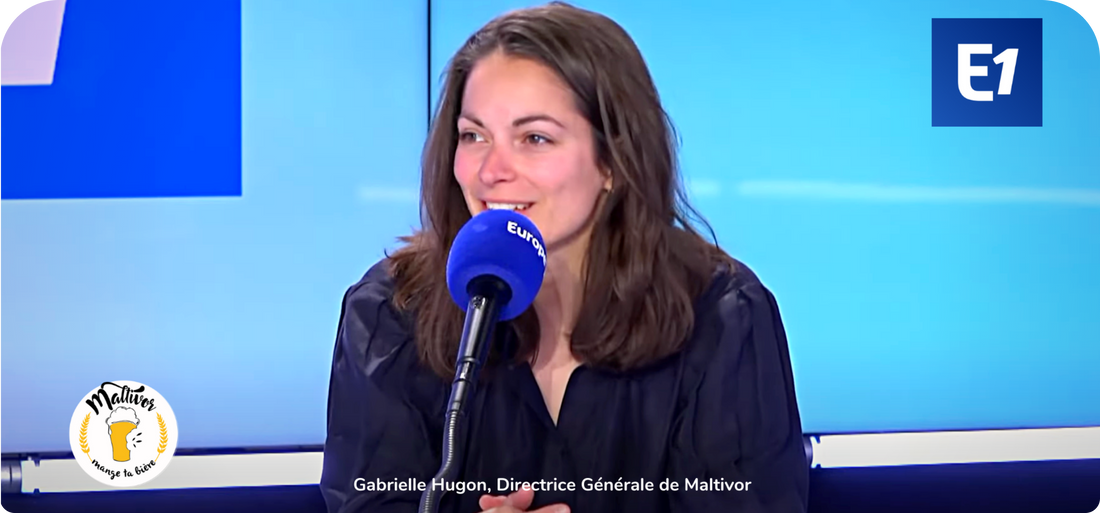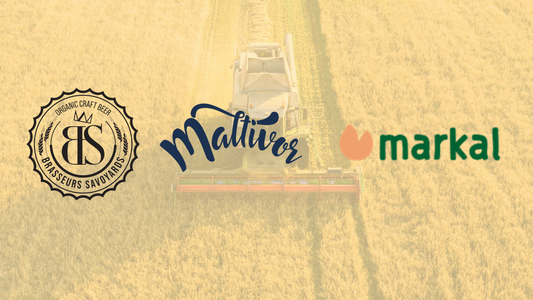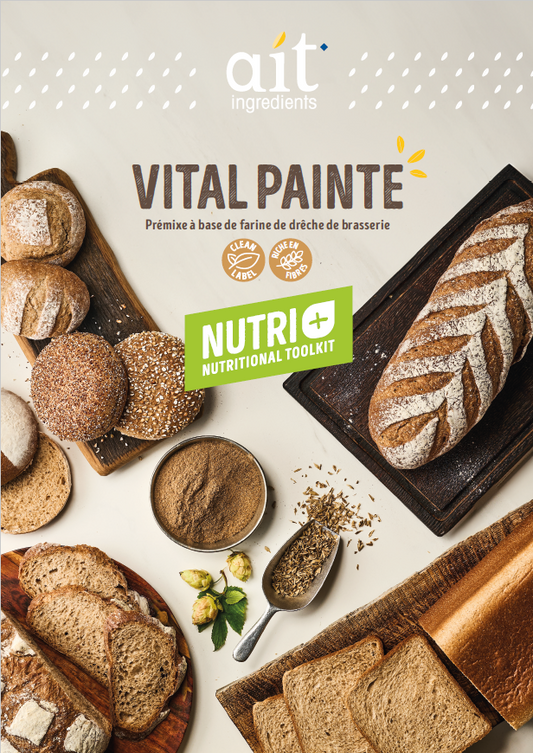Maltivor in “La France Bouge” on Europe 1!
Gabrielle Hugon, co-founder and general manager of Maltivor, was on Europe 1 to present the eco-responsible concept implemented by our young company from Lyon! She therefore answered with pleasure the questions asked by Europe 1 and if you missed the show, we transcribed everything that was said in this article! You can also find the YouTube video dedicated to our visit here.
What is the innovative concept of Maltivor?
Maltivor is a company that offers innovative ingredients for human nutrition. For this, we use brewery spent grains, it is the co-product of the brewing of beer, in fact, it is a cereal residue, which is still rich in fiber, protein and flavors. It is a material available in large quantities throughout the territory since each time 100 liters of beer are brewed, 30 kilograms of brewers' spent grain are produced. We transform spent grains into flour, which gives us an ingredient that is versatile and can be used in many applications. We are also working on a range of protein ingredients which will be specifically dedicated to the food industry. Our production workshop, which is in the Lyon region, is capable of recycling nearly two tonnes per day of brewery spent grain and we are in the process of setting up a second site which will be for industrial purposes and which will make it possible to recycle more than 10 tonnes per day. brewery spent day. Our objective is to develop small sites in the heart of the brewing basins to revalorize the spent grains available when the brewers wish. Maltivor's DNA is to really limit the waste of resources, so all our sites will be eco-designed.
Are spent grains rich residues that are not used?
They are used in animal feed most of the time, but with the rise of urban breweries, brewers had more problems treating them and since 2016, they have been forced to treat their bio-waste like all organic producers. -waste in France.
What you are proposing can work for a small brewer as well as a larger company?
We collect from micro-breweries, from craft breweries and with our industrial sites, we will position ourselves to offer this solution to larger breweries in terms of spent grain volume.
So we have to provide them with the logistical aspect, the right solutions so that it's practical for everyone and so that it's efficient?
Exactly, we take care of all the logistics. We collect the spent grains from the brewery in bins that belong to us, which we clean and disinfect in this way, we can guarantee the sanitary quality of the product. And we have a complete service for the brewery with the collection of spent grains and perhaps later the collection of other by-products so that they really have all their bio-waste treated by a single operator.
And what can be done with spent grains, have you already experimented, because there is already flour which you have explained well, are there other possibilities?
The possibilities are really multiple because flour, as I said, is an ingredient that is versatile so it can be used in a lot of applications. It can be bakery, pastry, agri-food applications, more original, biscuits, but also imitation meat, so all the alternatives to meat. In fact, it makes it possible to enrich the product with protein, which then improves the nutritional values of many recipes.
Is it important for you to convey the message that it is possible to be a woman in this industry and to innovate?
Yes, we must change the ideas received in this environment. You can repair a machine like any other person, it's skills that are quite important when you start, you don't necessarily have maintenance technicians available, you have to know how to do everything. For the search for financing, it's the same, we are more used to a duo of mixed or rather male entrepreneurs so we have to make our place and show that we are capable.
What do you want to become? What would be the next steps for you in 2023?
Maltivor's vocation is to be an ingredientist in order to offer innovative flours and other innovative ingredients for the food industry.
2023 is a pivotal year, we have just raised funds which will allow us to develop a range of protein ingredients. That is to say, to allow us to extract the protein part of spent grains to have ingredients that are really specific to the needs of the food industry.
And with that the spin-off of our first industrial site which will serve as a model for the next site that we will set up in the other brewing areas.
So you don't necessarily have to look for the Maltivor label, it will rather be a presence in certain products with specific ranges?
That's it, we still have a small range of products distributed on our website, but these products are more for educational purposes to make the product known, as you were saying earlier, to the general public and which allow to offer easy day-to-day applications.
And in innovations, what occupies your days at the moment? The next product you want to see come to fruition?
The next product is a flour that will be concentrated at 40% protein, our current flour contains 20%, that's already good, but with 40%, we will really be able to have very advanced nutritional claims in applications of our prospects.
How do we manage to double this percentage? What do you need to be able to do?
It is necessary to succeed in separating the fibers and the proteins. Today, in our milling unit, we have our mill which separates the flour from the bran, the bran is the very fibrous part, so we would have to go further and get a bigger part of protein in the product .
Pierre garcia, how do you view what Maltivor offers, may I remind you, general manager of the major Paris mills?
It's absolutely appealing, it's true that this ability to reinvent models, to find alternative solutions for food, we're talking about proteins, we're talking about fibres, it's just very pleasant to see that we have also these talents in France. It's also nice to see that we manage to have a traditional profession that is becoming more feminized […]. Then, it's always very pleasant to know that we will once again be able to go further in promoting all of our products. It is an additional enhancement of agricultural production, it goes in the direction of what we have been talking about all this morning, that is to say the reduction of our carbon footprint, the ability to make our sectors resilient and sustainable , so congratulations and long life to Maltivor!
Long life everywhere in France, it's the idea of being as close as possible, of finding the right ecosystem to find the right place, does it take time?
Yes, it takes time to properly map the breweries that are there, define the volumes they will produce and then, after finding the land, set up the production unit. We're in the food industry, it's specifics so we can't put ourselves in just any building, so yes it takes time. The next site will be north of Lyon and afterwards, we can imagine it in any heart of beer in France, the north of France in particular, the Alps, Brittany.



